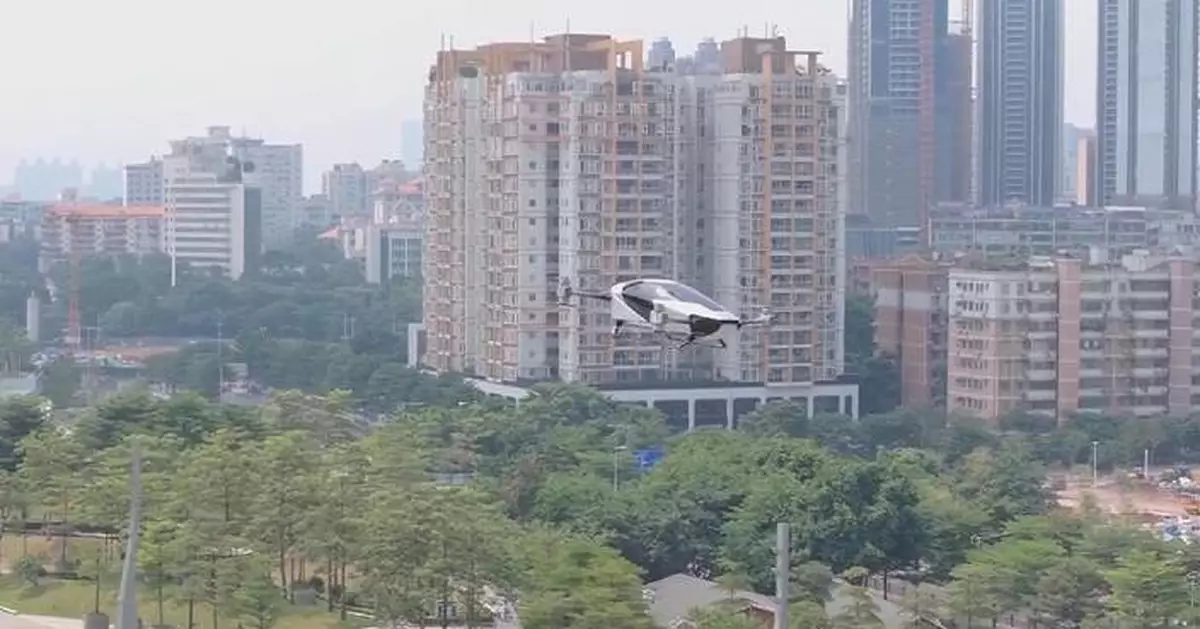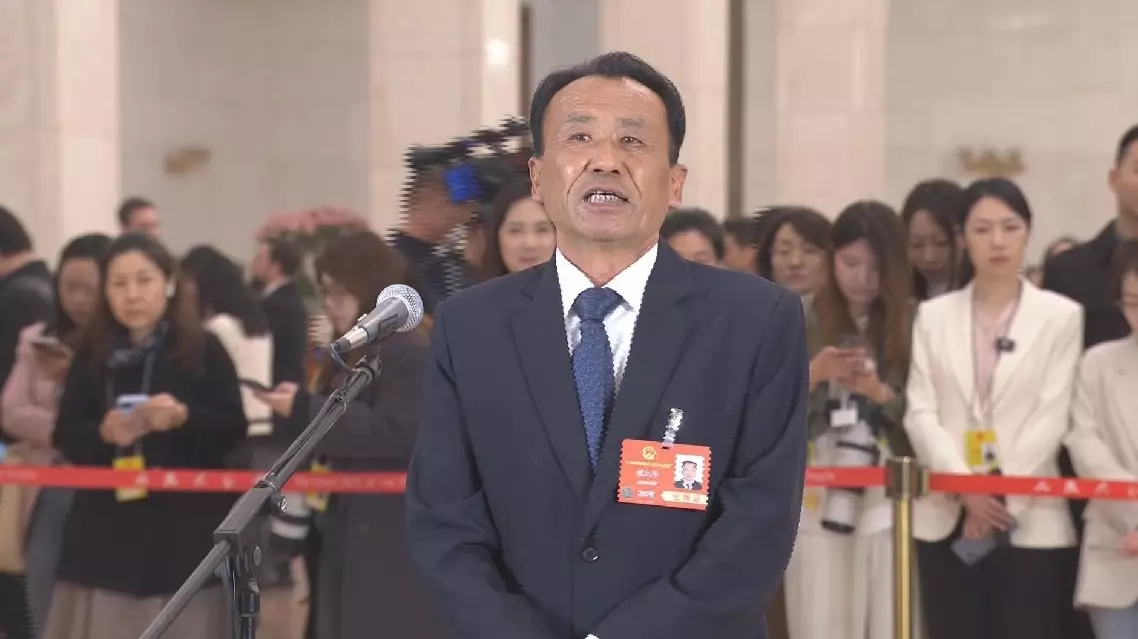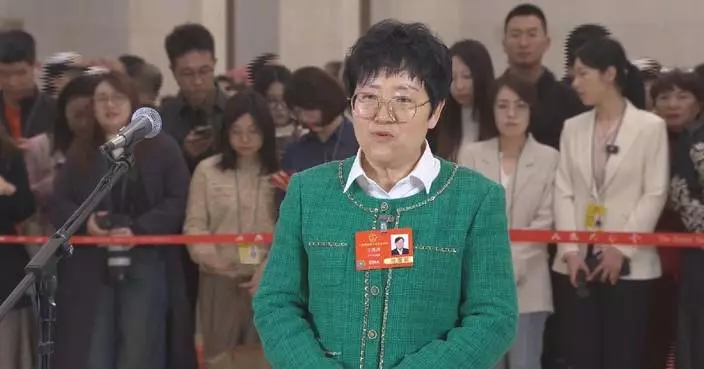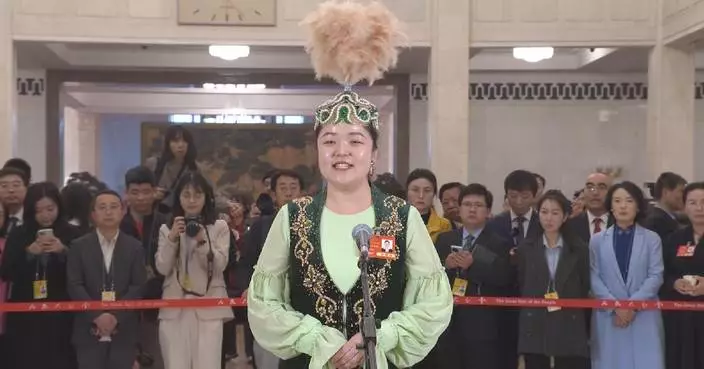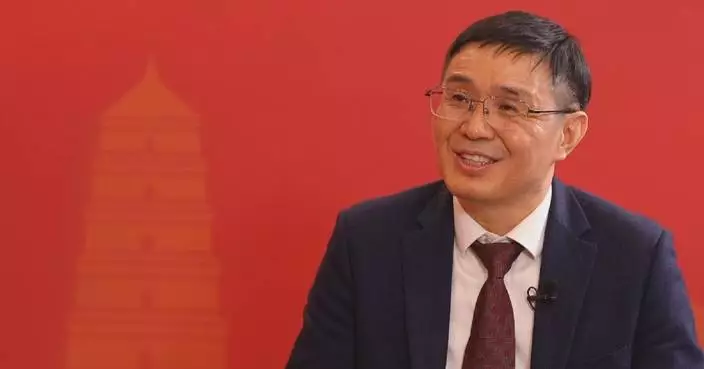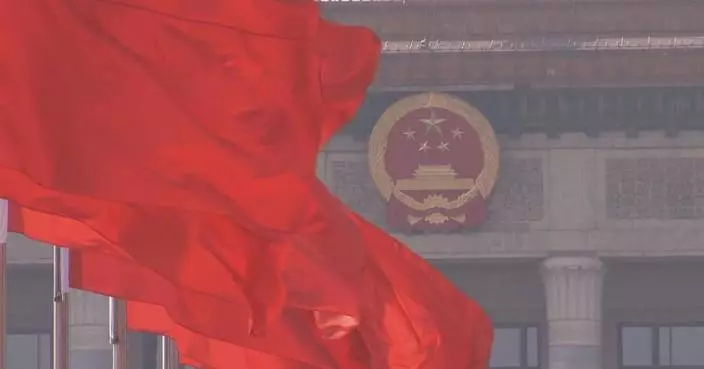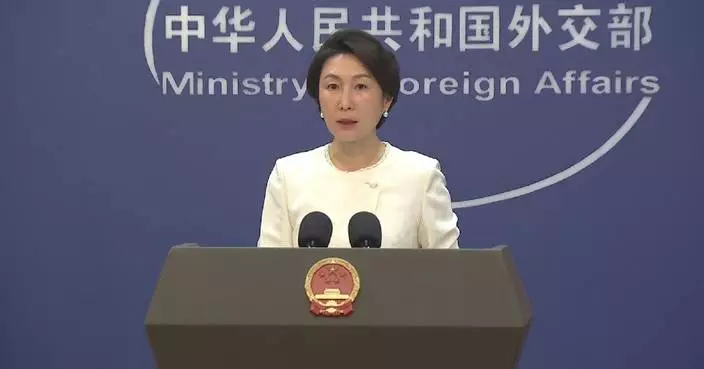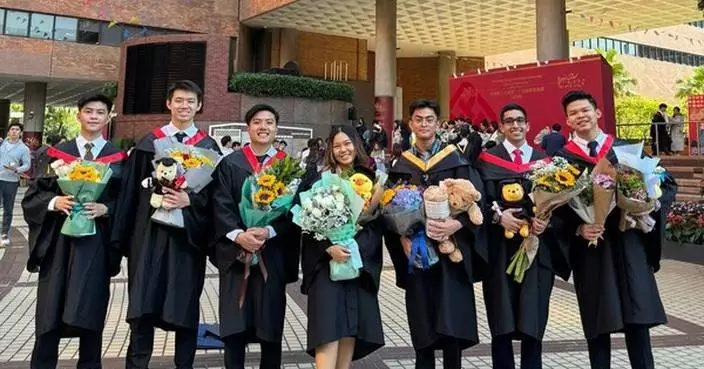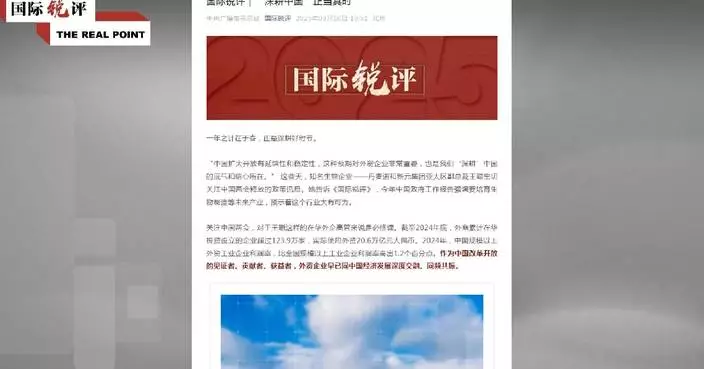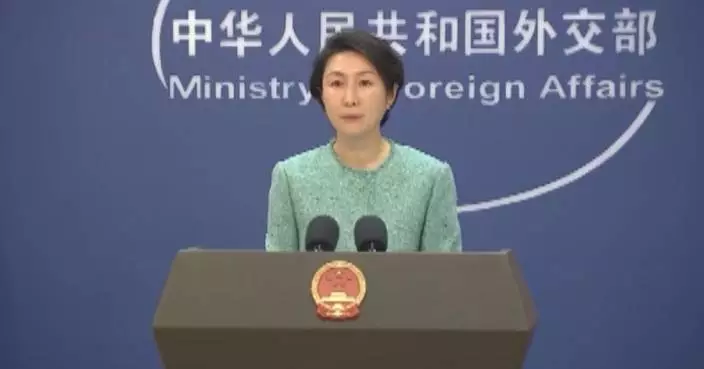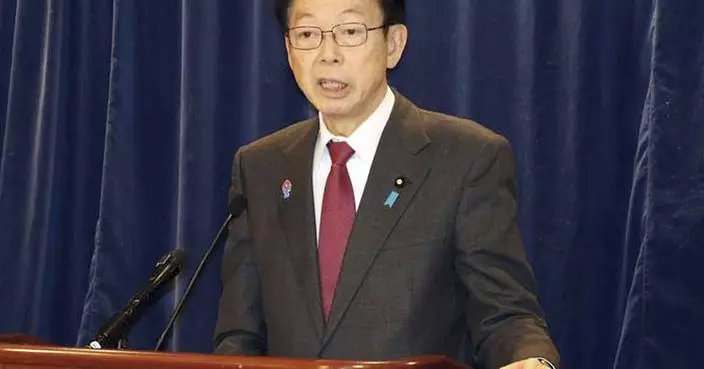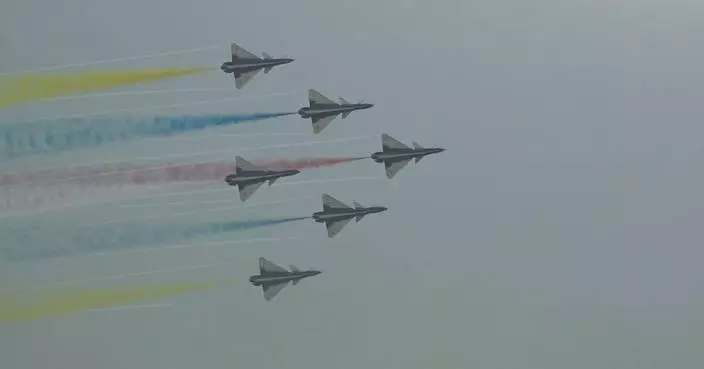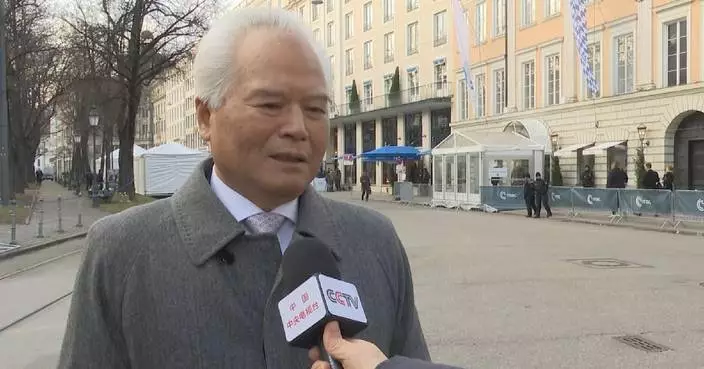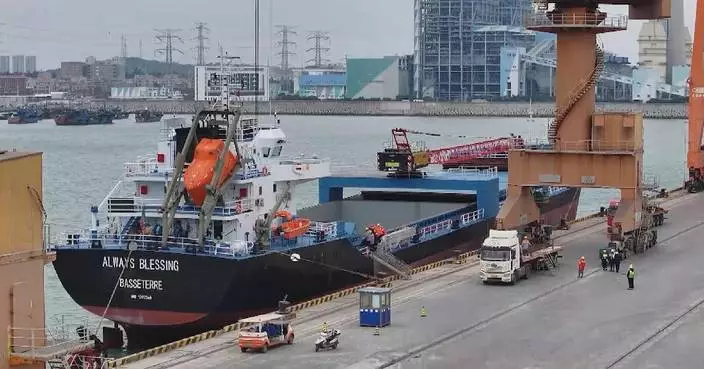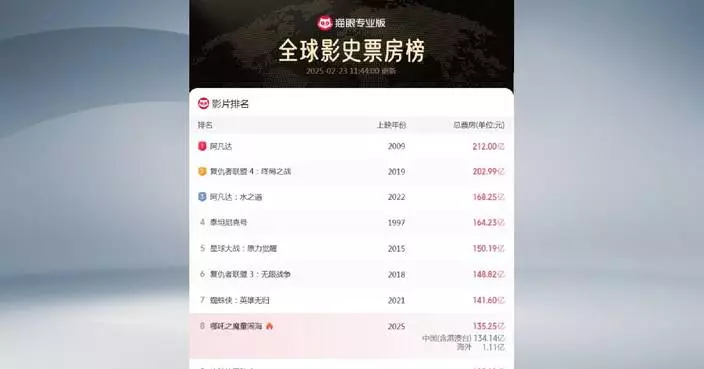A pioneering factory producing flying cars commenced construction on Sunday in Guangzhou, the provincial capital of Guangdong in south China.
The manufacturing base, commissioned by Xpeng Aeroht, an affiliate of the electric vehicle manufacturer XPENG, is hailed as "the world's first mass-production facility for flying cars."
As detailed on its official website, the flying car consists of two parts: the ground module and the air module. The ground module carries the air module, and the two modules can automatically separate and combine. Additionally, the ground module is capable of recharging the air module.
The first phase of the factory, covering an area of 180,000 square meters, is dedicated to producing the air module for the modular flying car named "Land Aircraft Carrier," with a designed annual production capacity of 10,000 units, according to the company.
"Upon completion, this factory will featur several significant advantages: first, controllable costs; second, high efficiency; and third, consistency in production quality. This means that all production are under our control and ensures we deliver more cost-effective products to our customers," said Qiu Mingquan, vice president of the Xpeng Aeroht.
The "Land Aircraft Carrier," which completed its manned test flight in September, is scheduled to start pre-sales by the end of the year and the price is set at around 2 million yuan (some 280,520 U.S. dollars) , according to Xpeng Aeroht.
The vehicle's maiden public flight is scheduled for early November at the Zhuhai Airshow, and more derivative products are also anticipated, such as long-range, high-speed eVTOL aircraft that can address urban and intercity air traffic challenges.
Beyond personal use, the modular flying car has the potential for public services, including emergency rescue and sightseeing tours.
"In the past, aircraft used to be hard to operate, when you had to spend 20 or 30 hours or even longer to learn it. But with our product, you can handle it in just five minutes and become a know-how in three hours, as its single-stick control changes all the traditional operating logics for aircraft. Even if you don't know how to operate it, the vehicle can fly automatically," Qiu said.
Guangzhou is among a growing number of Chinese cities eager to tap into the burgeoning low-altitude economy. Its Huangpu District is home to more than 50 enterprises dedicated to this sector, encompassing research and development, manufacturing and application, officials said.
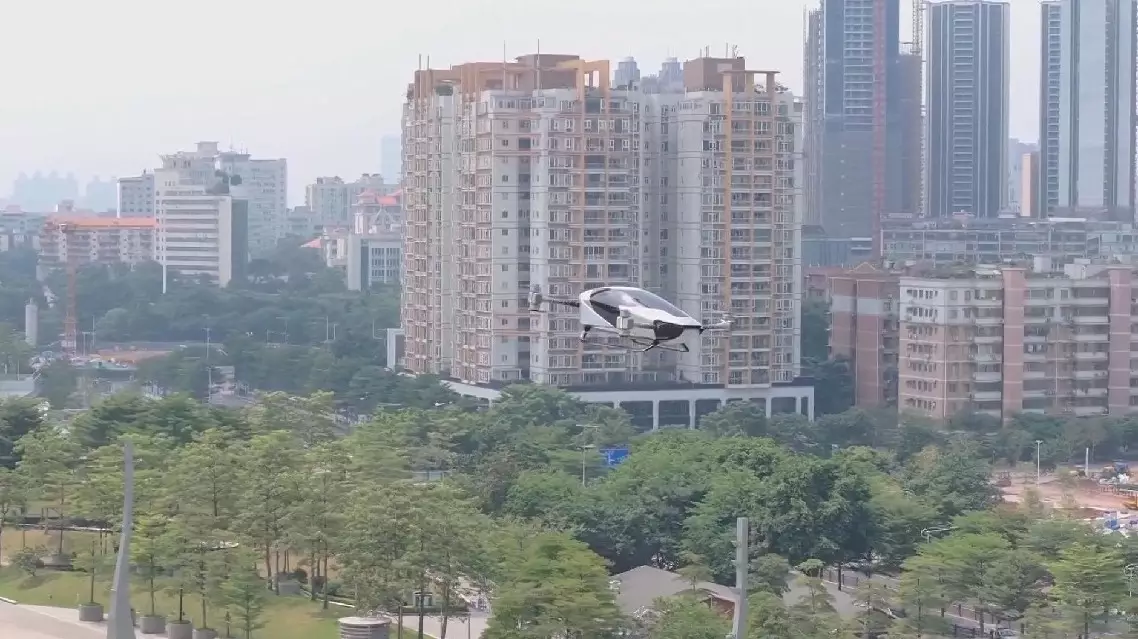
Flying car factory breaks ground in Guangzhou


